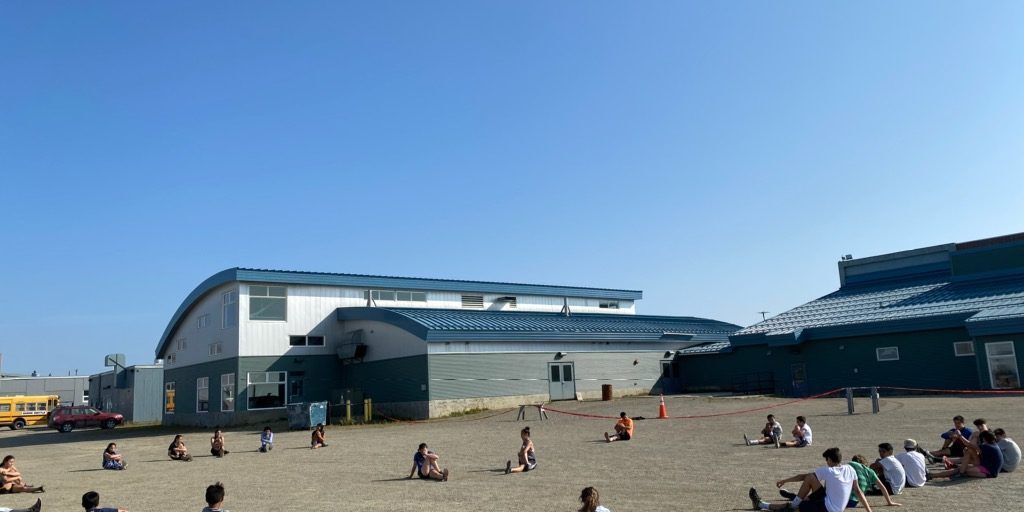Classes begin in person for all but one of the Nome and Bering Strait School District. Stebbins’ schools will be remote. The first day for all schools in the district is August 25. White Mountain’s school began, August 23. Due to the rise of the Delta COVID-19 variant in Alaska and nationwide, schools are obliged to continue COVID-19 mitigation measures.
Superintendent of Nome Public Schools Jamie Burgess pointed this out during a recent school board meeting:
“We’re not where we were hoping we were going to be with the pandemic at this point in time. I think a lot of us were thinking we were going to be [at] the light at the end of the tunnel, pretty close here. But unfortunately, that is not where we need to be.” Burgess said.
During a public call on August 18, Burgess, NSCH medical director Dr. Mark Peterson, and Bering Strait School District Superintendent Phd Doctor Bobby Bolen addressed questions about a safe return to school.
They detailed measures such as mask mandates. Burgess said that any school with less than an 80% vaccination rate will require universal masking. Nome Elementary School and the Anvil City Science Academy will have universal masking policies, as their student bodies include children under the vaccination age. Nome-Beltz Middle High School will also enforce universal masking since their vaccination rate is only at 61%.
Masking mandates will not stop school sports, however. Nome still is a relatively low transmission area and has precautions in place for a safe sports season, according to Burgess:
“We have a higher vaccination rate among our student athletes as a result of last year and their desire to participate in some meets and games outside of the community,” Burgess said.
Burgess pointed out that Nome is approaching each sport differently based on its ability to transmit the virus. Cross country is relatively low risk, she said.
“They are outdoors, and we are not requiring masking for students at this point in time for anything that happens outside,” Burgess said.
The Nome School district considers volleyball, the other on-going fall sport in Nome, to a higher risk for transmission than cross country. Consequently, players will see stricter masking precautions.
Nome Public Schools will allow athletes to travel to competitions, provided that the community they travel to has a relatively low transmission rate. Unvaccinated athletes will have to screen for COVID-19 before and after travel to communities with COVID-19 rates.
The Bering Strait School district also intends to have an extracurricular calendar. Currently, only cross country is holding practices and preparing to compete, Bolen says. The Bering Strait District, like the Nome Public Schools, considers cross country to be a low-risk activity, as it is outdoors and distanced.
“[The district implemented a] mitigation plan to wear masks when they are in team meetings or in huddles. When they’re talking to the teams. But once they’re out participating they can take their mask off to run,” Bolen said.
Like in Nome, the Bering Strait School district intends to screen athletes for COVID-19 before and after traveling, a practice which Bolen says was successful in preventing the virus last year.
The Nome Beltz High School volleyball team will have their first competition this weekend. The team was supposed to travel to Seward to compete but will now go to Fairbanks instead.
The cross country season is already underway. The Nome-Beltz High School team attended the Soldotna invite last weekend, with 6 athletes participating.
Image at Top: NBHS cross country team warms up together outside of their school (2020). Photo courtesy of Rosa Wright, used with permission.




